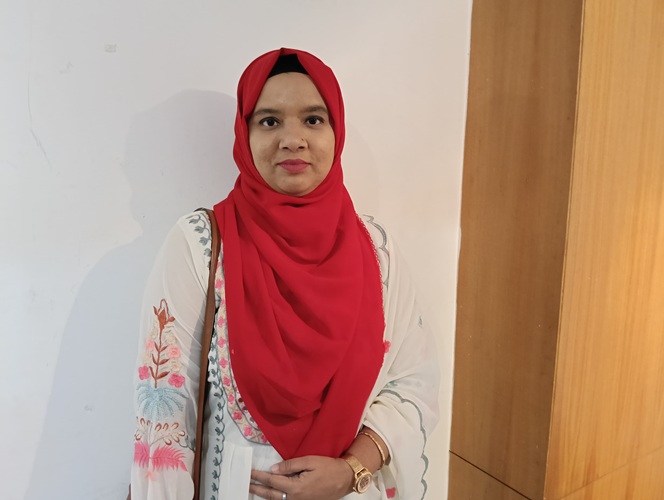By Asif Anwar Alig
Volatile socio-political scene in Middle East and North Africa (MENA) besides other Muslim dominated Asian countries, raise question if peace can still prevail. Are they in the path to decadence and how much damaging is the scenario—socio-political scenes cause worst impact on the economies in doldrums.
Boiling Syria with its cold war scene of devastation cause constant human rights abuses. Its political turmoil worsened economic condition in the war zone. Egypt faces the worst phases of political unrest. Recent violations had directly impacted on its economy for further dwindling.
Broken down socially and politically, post-Gaddafi Libya had had similar fate. It witnessed completely broken economy. War-ridden Iraq sees economical inconsistencies in the absence of strong leadership. Highly sanctioned Iran, on the other hands, has many issues to settle. Are these countries in a position to sustain? Yemen had its share of political bigotries and uprising in the recent past.
Jordan and Oman were stable until the current unrests began in neighboring Syria. Palestine has literally shrunk from world map. Political upheavals ended in Tunisia and its socio-economic revival is the good sign of progress to initiate a new leadership perspective. Bahrain had engulfed under uprisings and series of demonstrations that continued as civil resistances until got suppressed. MENA has been constantly encountering the resistances of one type or the other.
What prompted for socio-political imbroglio?
Uprisings in NENA saw the light of the day after the self-immolation of Mohamed Bouazizi in Tunisia. It turned a revolution in the region especially in Egypt and Bahrain to achieve political freedom as demands for granting. Bahrain wanted equal rights to majority Shias from King Hamad bin Isa Al Khalifa.
Gulf Cooperation Council’s (GCC) biggest ally, Kingdom of Saudi Arabia supported suppressing the revolutions in Bahrain to normalize situations but uprisings remained vibrant off and on. Except some sporadic incidents of violence, Bahrain had full control over the situation while martial law and three-month state of emergency was declared. Surprisingly stable economic stability and normalized political scene paved the way for easy control.
Only selected MENA countries have managed to overcome the uprisings to retain peace. Smaller countries Bahrain and Tunisia achieved the success. Economic downfall of United Arab Emirates in the recent past remains debatable issue. It has somehow recovered but its whopping $80 million foreign debt and real estate prices dropping to 50%, was the matter of serious concern. With Sheikh Tamim bin Hamad Al Thani taking over the reins MENA peninsula, Qatar in June 25, 2013, its existing economic stability mounted further. The young Emir is energetic and visionary.
Kingdom of Saudi Arabia is most stable economy out of all MENA countries with its command in the hands of visionary, statesman and king, Custodian of the Two Holy Mosques, King Abdullah bin Abdulaziz. He maintains a role of big brother to support the whole region with fast growing economy.
If looked at the recent history of uprisings in MENA then one wonders how Arab Springs have engulfed this region with complex political, social and economic transitions. They damaged economic conditions to worsen situations further. Being oil-rich region these countries still have hope to manage economic performances even though some of them encounter warlike scenes.
It could be assumed ironical but the fact is undeniable that MENA region’s oil-exporting countries have grew at healthy rate in the preceding years even though they faced tough political situations. Countries importing oil had to face sloth on economic growths. Mixed growth even while region faced ongoing political turmoil seemed unbelievable. It remained a proven fact in the case of economic empowerment.
Libya, Egypt and Syria need to overcome immediate challenge of re-establishment after huge political resistances that caused social sacrilege resulting into macroeconomic instability. Uncertainty and social unrests brought economic slowdown. Attempts should be made to bring avenues for the economic uplift by bringing better job prospects to generating growth avenues out of the existing scuffs.
Saudi Arabia is a major player as constantly growing economy with social, political and economic empowerment. It encourages citizens to become part of the workforce for nation’s progress.
Taking concrete steps to tackle current situation in MENA would definitely shape economic, social and political empowerment with sustainable growth. Current Arab springs are considered symbolic of painful economic and political reforms needed since years.
Conditions have worsened in Syria, Egypt and Iraq so are their economies either collapsed or in the verge of collapsing. The region still has good prospects to grow economically. Economists have predicted for Iraq and Libya to outperform if they attain political stability.
Whole MENA region shouldn’t be observed under single economic perceptive. Conditions do vary from one country to the other. Rising oil production in war torn Iraq and Libya are signs of bright economic prospects, provided handled systematically.
Struggling Egypt faces the hit and its economic growth has literally reached to standstill. If led by a strong political backup, the country would be stable with its economy achieving the substantial growth.
Shambling economy of war-torn politically and socially broken Syria is big cause of concern. Civil war and human rights violation hardly stops while UN Observation on the use of chemical weapons used to kill innocent masses, pressure on overthrowing president Bashar Hafez al-Assad and et al are the issues that doesn’t seem to be resolved the sooner.
The situation has brought complete failure to Syria’s economy. Its revival won’t be a miraculous thing. There is no iota of economic sustainability in this failed nation.
Constant uprisings for political stability and sustenance prompted many MENA countries to look ahead and explore the quicker action for economic uplift by scaling with infrastructure to manage economies. Even though Egypt constantly faced uprisings since last few years but its economy has been still growing from 2% to 3%. It is indeed noticeable element. Even though uprisings are now common in MENA but economic analysts still hope that countries like Egypt and Iraq would emerge into potential markets of future in consonant to Saudi Arabia that is an economically stable nation in the region.
Saudi transition and economic prospects
Officially there is no socio-political transition in the Kingdom of Saudi Arabia due to political and economic stability. The country though sees another transition in the form of widespread reforms. Business prospects and enormous economic growth is well observed through its role of accounting for half of the GDP of entire Gulf region. Saudi Arabia has witnessed phenomenal growth opportunities while its neighboring countries have repeatedly been engulfed into political and social uprisings.
Ray of hope for MENA nations
Although post-conflict recovery of Libya proved more than what it had believed at recent 122% growth in GDP, it still faces the socio-political stigma. Political situation has worsened on some stages but most countries in MENA region are in the multiple stages of development. Arab Spring of 2011 brought entire Middle East into politico-economic catastrophe, while discontents increased. Rebuilding infrastructure, revitalizing industry and finding jobs for the growing mass of unemployed were grave issues to tackle.
MENA witnesses the winds of change almost every day and continues for a transformation even though it faces socio-economic instabilities. All oil rich countries, particularly those experiencing transition, are in the ardent need of growth-orientated reforms to rebuild them. Their economies have already been hit hard by social and political upheavals.
Change is to take place in the region with prospects for new governments to take control of the helm with political and economic vision. Necessary steps are required to nurture and develop confidence.
Socio-political scenario
Small but comparatively richer countries Qatar and United Arab Emirates have attempted to use their oil revenues to shield to maintain economic and social empowerments. Falling budget revenues, deteriorating fiscal balances and average debts still haunt them though. For Saudi Arabia, which is world’s biggest oil exporter and highly influential country in MENA, problem is of growing unemployment or dissatisfaction in the youth community. Kuwait and Bahrain face constant unrests. Vulnerable tensions between United States and Iran might impact on the region.
Ongoing civil war in Syria causes biggest economic setback and threat to neighboring Jordan and Lebanon as well. Libya has recovered fast by adopting latest trends post Gaddafi with avenues for better infrastructure and diversified economic growth. Strong energy sector of Libya—solar power besides oil and gas paved the way for such development.
Tunisia has moved ahead in the path to revolutionary change through fast progress of economy that saw a new transition. Its strong infrastructure and well trained workforce made things possible. Despite political unrest and delay in its transition to democracy, MENA still attracts foreign direct investments (FDI). It is true that fiscal challenges in Egypt and Jordan has hurt due to political unrests in neighboring Syria but there is good opportunity for reforms.
Ever since Egypt had transition to democracy after 2011 uprisings it hardly enjoyed peace. Its economy constantly struggles and deteriorates further. Similarly, Jordan has been badly affected over the past few years due to Egyptian and Syrian upheavals. Until and unless firm decision and political farsightedness isn’t given due preference the economic slowdown would constantly increase in MENA region. Its high time for political, social and economic unity to retain the lost glory.
- Asif Anwar Alig, was a television journalist in ETV Urdu, editorial coordinator for Vision—The Journal of Business Perspective at Management Development Institute, Gurgaon and Media Specialist at Prince Mohammad bin Fahd University in Saudi Arabia before joining the Ministry of Higher Education in the Kingdom of Saudi Arabia as an Assistant Professor.







0 Comments